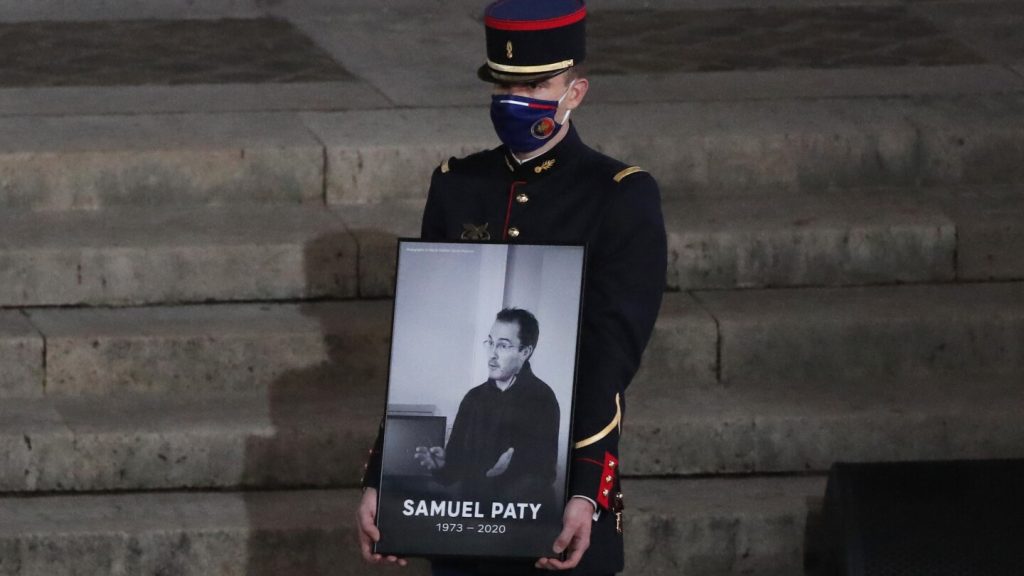A French court is set to announce its verdict on Friday in the trial of eight individuals charged in connection with the 2020 beheading of teacher Samuel Paty, a case that shook France and reignited debates over free speech and extremism.
Samuel Paty, 47, was killed by Abdoullakh Anzorov, an 18-year-old of Chechen origin, after showing cartoons of the Prophet Mohammed in a class on freedom of expression. The cartoons, initially published by Charlie Hebdo magazine, were part of a lesson to discuss French laws protecting free speech, including blasphemy.
Anzorov was killed in a police shootout shortly after the attack. Paty has since become a symbol of free speech in France.

The trial, which began in November, involves seven men and one woman accused of fostering a climate of hatred that led to the attack. The defendants, aged between 22 and 65, face charges ranging from belonging to a terrorist organisation to spreading inflammatory content online.
Prosecutors have sought prison sentences ranging from 18 months to 16 years, though the family of Paty has criticised the demands as too lenient.
Key figures include Azim Epsirkhanov and Naim Boudaoud, friends of Anzorov, who allegedly provided logistical support, including helping him acquire weapons. Prosecutors have sought sentences of 16 and 14 years, respectively, for the two men.
Others include Brahim Chnina, father of a student who falsely accused Paty of discriminatory behaviour, and Abdelhakim Sefrioui, an Islamist activist. Both face charges of inciting hatred against the teacher and could receive sentences of up to 12 years.
Prosecutors argued that while the defendants may not have intended to directly cause Paty’s death, their actions—especially online—fueled an atmosphere of hostility.
The case has underscored tensions in France over free speech, secularism, and religious extremism. It also comes amidst a backdrop of previous attacks linked to the Charlie Hebdo cartoons, including the 2015 massacre at the magazine’s offices.
The court’s decision is expected to leave both sides dissatisfied. Paty’s family has called for harsher penalties, while defence lawyers argue the charges lack evidence of terrorist intent.
The verdict, expected Friday evening, marks a significant moment in France’s ongoing struggle to balance its secular values with its diverse religious communities.


